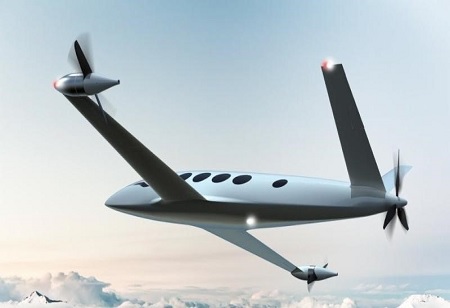
Japan to Invest $33B in the development of Electric Aircraft

 The Japanese government has unveiled an ambitious plan, investing ¥5 trillion over a decade in collaboration with the private sector to create a "Made In Japan" regional aircraft by 2035, incorporating cutting-edge technologies such as hydrogen power. While multiple options are under consideration, including hybrid electric systems and hydrogen combustion, hydrogen stands out as a primary focus due to its potential to decarbonize air transport and Japan's competitive edge in related technologies.
The Japanese government has unveiled an ambitious plan, investing ¥5 trillion over a decade in collaboration with the private sector to create a "Made In Japan" regional aircraft by 2035, incorporating cutting-edge technologies such as hydrogen power. While multiple options are under consideration, including hybrid electric systems and hydrogen combustion, hydrogen stands out as a primary focus due to its potential to decarbonize air transport and Japan's competitive edge in related technologies.
Minister Kazuchika Iwata emphasized Japan's aim to lead in carbon-neutral technologies, particularly hydrogen, underscoring the strategic importance of this endeavour. The Ministry of Economy, Trade and Industry (METI) will soon announce an official strategy for the aircraft program. Importantly, the initiative seeks collaboration with global partners, possibly to avoid the challenges encountered by Japanese giant Mitsubishi Heavy Industries in its SpaceJet program, which was terminated after significant delays.
Several international companies, notably ZeroAvia and Universal Hydrogen are advancing hydrogen technology for regional aircraft, with flight tests conducted and plans to introduce fuel cell-powered aircraft by 2025. Additionally, Easyjet, Rolls-Royce, and Airbus are actively involved in developing hydrogen-based propulsion systems and aircraft, with Airbus targeting a commissioning year of 2035.
The European Union has approved substantial subsidies for French initiatives in green hydrogen and biofuel production, highlighting the global momentum towards decarbonization efforts. Moreover, the US government has allocated significant funding for industrial decarbonization, including investments in clean hydrogen technologies. These developments underscore the growing international focus on transitioning towards sustainable aviation solutions.

